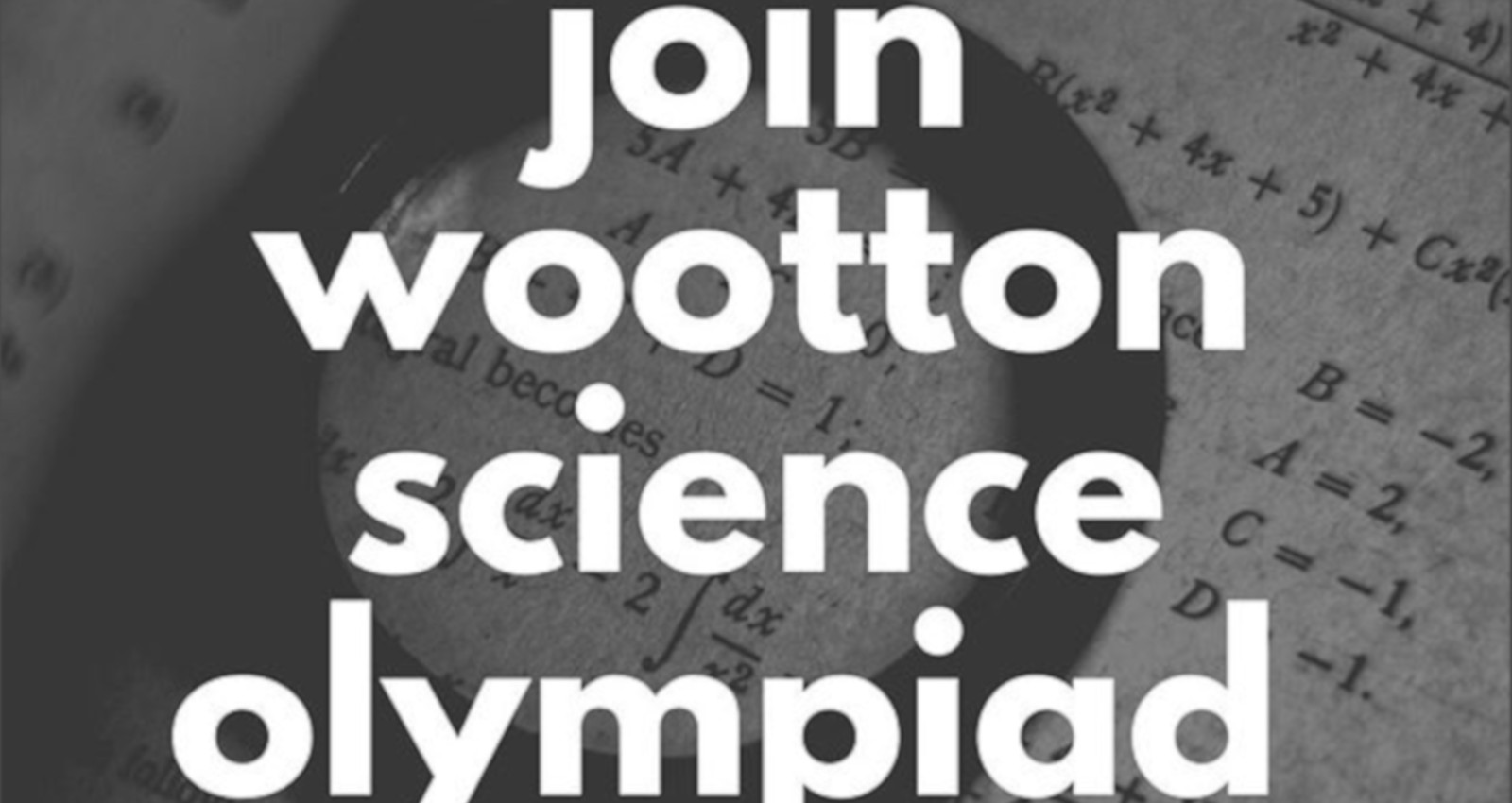Wootton High School Science Olympiad Club


Please complete your profile here
Science Olympiad is a team competition. Students compete in teams of 2 or 3 in 23 events centered around different fields of science, including earth and space science, biology, chemistry, physics, and engineering. There are multiple levels of competition: invitational, regional, state, and national. Teams that perform well at one level advance to compete in the next level.
In Science Olympiad Club, you will choose a selection of events to compete in. During regular meetings you will prepare for the competition and research your events as a team, learning science as well as building valuable teamwork skills.
Building events involve building something prior to the competition.
In lab events, students perform lab experiments during the competition.
Study events are administered in the format of a test.
Anatomy and Physiology is an event which tests students' knowledge about the anatomy and physiology of a human body. Topics may include diseases in those systems as well as the general anatomy and function of each system from the cellular to the holistic scale.
This event integrates content knowledge and process skills in the areas of cell biology and cellular biochemistry.
Disease Detectives focuses on epidemiology, the study of diseases and how they spread.
Ornithology is an event concerning the science and study of birds. The competition includes both identification of birds and questions about bird characteristics (anatomy, diet, range, etc).
In this event, students will demonstrate an understanding of general ecological principles, the history and consequences of human impact on our environment, solutions to reversing trends and sustainability concepts.
In Astronomy, teams answer questions on math and physics relating to the year's topic.
This event will focus on physical and geological oceanography.
In this event, teams use their knowledge of rocks and minerals to identify pictures/specimens and complete a written test.
In this event, students will use remote sensing imagery, data and computational process skills to complete tasks related to climate change processes in the Earth system.
In this event, teams must construct an antenna device prior to the tournament that is designed to transmit a signal at 2.4 GHz and complete a written test on the principles of electromagnetic wave propagation.
In this event, teams will answer questions related to time and they may construct and bring one non- electrical device to measure time intervals between 10 and 300 seconds.
Chemistry Lab is an event where participants must learn the year's selected aspects of chemistry and perform a lab or a set of labs regarding those topics.
In this event students will be given a scenario and some possible suspects, and will perform a series of tests. These tests, along with other evidence or test results, will be used to solve a crime.
Environmental Chemistry is an event in which students are tested on their knowledge of environmental chemistry, including chemical reactions, characterization, and quantification of soil properties and nutrients.
In this event, teams will design and build a Bridge (Structure) meeting requirement specified in these rules to achieve the highest structural efficiency.
Students build an electronic temperature-sensing device that measures and displays temperatures for water samples.
In this event, competitors design and build a ramp and a vehicle that is powered solely by the vehicle's gravitational potential energy.
Participants design a bottle rocket which launches a ping pong ball, with the goal of achieving the longest flight time.
The event involves making, testing, and flying an airplane powered by a twisted rubber band, with the goal of achieving the longest flight duration.
In this event, participants decode encrypted messages, or they may be required to encode messages with certain advanced ciphers.
In this event, competitors will design, execute, and write a description of an experiment based on the topic and materials provided.
In the event, one team member is given a structure. The team member writes a set of instructions on how to build the structure. The other team member is given the instructions and must recreate the object as accurately as possible.
The event requires that teams assemble and fly a rubber-powered airplane on site.
Something about plants, agriculture... and science.
Teams are tasked with building 1 programmable robotic vehicle, and use that robot to follow track lines to reach a target at a set amount of time as accurately and efficiently as possible.
Teams must construct a collecting device that is designed to collect heat and complete a written test on alternative energy concepts.
For this event, one student will describe an object and how to build it from screenshots and the other student will build the device in a computer-aided design (CAD) software.
The event consists of two parts: a written test on Cryptography and Web Architecture, and a hands on task on Cryptography and Programming.
If you are interested in joining Science Olympiad, or have questions, you can email us at woottonscienceolympiad@gmail.com.
In order to recieve announcments, please join the Wootton Science Olympiad Remind by going to this link or texting @woottonsc to 81010.
Fill out the following form to sign up for tryout events.
Form